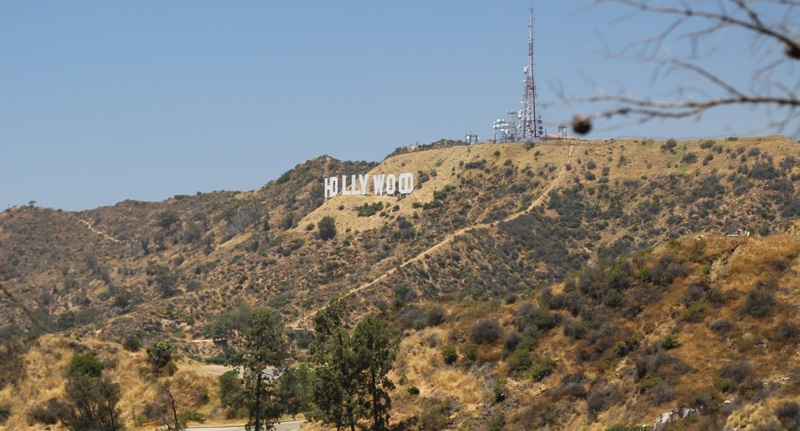
The Birth of Hollywood
In the early 1900s, filmmakers sought new locations for their productions due to the favorable weather and diverse landscapes of Southern California. Hollywood, with its sunny climate and proximity to both the mountains and the ocean, quickly became a prime destination for filmmakers. As a result, studios and production companies began to establish themselves in the area, leading to the birth of Hollywood as the center of the film industry.The Silent Era
During the silent era, from the late 1910s to the late 1920s, Hollywood experienced tremendous growth. Silent films captured the imagination of audiences worldwide, and Hollywood studios churned out countless movies. Legendary comedians like Charlie Chaplin and Buster Keaton rose to fame, captivating audiences with their physical comedy. As the technology improved, filmmakers experimented with new techniques, further enhancing the visual storytelling experience.The Golden Age of Hollywood
The Golden Age of Hollywood, spanning from the 1930s to the 1950s, marked a period of unprecedented success for the film industry. Hollywood studios established the studio system, a highly centralized approach to filmmaking. The studio system allowed studios to tightly control every aspect of production, from casting to distribution. This era produced timeless classics such as “Gone with the Wind” and “Casablanca.”Studio System
Under the studio system, major studios like MGM, Paramount, and Warner Bros. held the power, signing actors to exclusive contracts and molding their careers. The studios also controlled the distribution networks, owning theaters across the country. This level of control enabled them to dominate the market and dictate the content produced.Iconic Films and Stars
The Golden Age of Hollywood introduced audiences to unforgettable films and iconic stars. The likes of Marilyn Monroe, Humphrey Bogart, and Audrey Hepburn graced the silver screen, leaving an indelible mark on popular culture. Musicals, film noir, and romantic comedies became prevalent genres, captivating audiences with their captivating narratives and memorable performances.The Rise of Independent Filmmaking
As the studio system began to decline in the 1950s and 1960s, independent filmmakers emerged, challenging the established order. Filmmakers like John Cassavetes and Roger Corman paved the way for a new wave of cinema that focused on personal expression and artistic integrity. Independent films offered fresh perspectives and tackled social issues, often pushing the boundaries of conventional storytelling.The Hollywood Blacklist and McCarthyism
In the 1940s and 1950s, Hollywood faced a dark chapter in its history. The era of McCarthyism led to the Hollywood Blacklist, a period when alleged communists and sympathizers were denied work in the film industry. Many talented individuals had their careers ruined or were forced to work under pseudonyms to continue working. This period had a chilling effect on creative freedom and left a lasting impact on the industry.New Hollywood and the Auteur Movement
The late 1960s and 1970s witnessed a wave of change in Hollywood, known as New Hollywood. Filmmakers like Martin Scorsese, Francis Ford Coppola, and Steven Spielberg challenged traditional storytelling conventions and embraced a more personal and artistic approach. This period also saw the rise of the auteur movement, where directors were regarded as the primary creative force behind a film.Hollywood Today
Today, Hollywood continues to be a thriving hub of the global film industry. Major studios produce big-budget blockbusters, while independent filmmakers create groundbreaking and thought-provoking films. Hollywood has also adapted to technological advancements, embracing digital filmmaking, special effects, and streaming platforms. The industry remains a powerhouse, consistently producing content that captivates audiences worldwide.The Impact of Hollywood on Popular Culture
Throughout its history, Hollywood has had a profound impact on popular culture. Films have the power to shape societal attitudes, spark conversations, and inspire generations. Hollywood has given birth to fashion trends, memorable catchphrases, and iconic characters that have become part of our collective consciousness. The influence of Hollywood extends beyond the silver screen, permeating music, fashion, and even everyday language.The Future of Hollywood
As we look to the future, Hollywood faces new challenges and opportunities. The rise of streaming platforms has disrupted traditional distribution models, allowing for greater diversity in storytelling and accessibility. With advancements in technology, virtual reality, and artificial intelligence, the way we consume and experience films is evolving rapidly. Hollywood will continue to adapt, pushing boundaries and captivating audiences with innovative storytelling.Conclusion
The history of Hollywood is a fascinating journey filled with triumphs, setbacks, and artistic achievements. From its humble beginnings as a small filmmaking community to becoming a global symbol of the entertainment industry, Hollywood has left an indelible mark on the world of cinema. As we continue to be enthralled by the magic of the silver screen, we can’t help but appreciate the enduring legacy of Hollywood. https://rdcbraille.com/the-history-of-hollywood-movies/Who is the Father of Economics?
Adam Smith is widely regarded as the Father of Economics. His influential book, The Wealth of Nations, published in 1776, laid the foundation for modern economic thought. Smith emphasized the role of economics in promoting wealth creation, advocating for free markets and division of labor as vital for economic growth.
What Makes Uncharted a Must-Watch Adventure Film?
The uncharted movie review reveals why this adventure film is a must-watch. With its thrilling storyline, charismatic characters, and breathtaking action sequences, Uncharted effortlessly captures the essence of the acclaimed video game series. The dynamic chemistry between Tom Holland and Mark Wahlberg adds depth to the narrative, while the stunning visuals and impressive set pieces keep audiences on the edge of their seats. Uncharted is an exhilarating cinematic experience that promises to satisfy both fans and newcomers alike.
Are There Any Famous Hiking Trails in Hollywood?
Hollywood, known for its glitz and glamour, does offer some intriguing hiking trails. One of the famous hiking trails in Hollywood is the Runyon Canyon Park, offering breathtaking views of the city. Another fascinating trail is the Griffith Observatory Hiking Trail, providing a blend of nature and stunning views of the iconic Hollywood sign. These ทางเดินป่าที่น่าสนใจ (famous hiking trails) offer locals and visitors a chance to escape the bustling city and immerse themselves in nature’s beauty.
